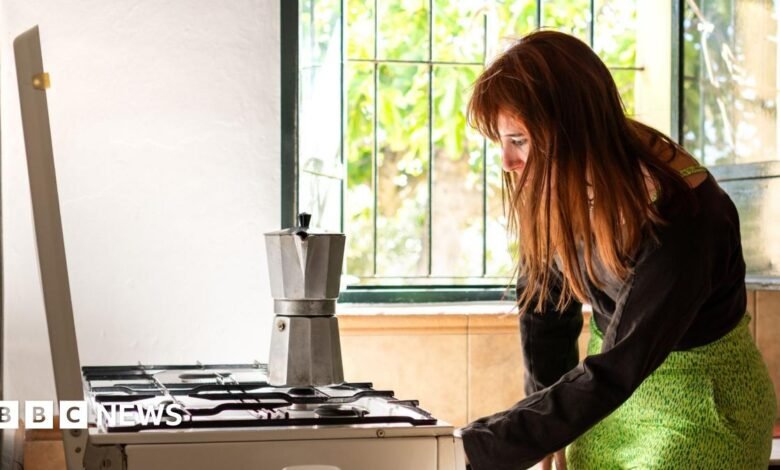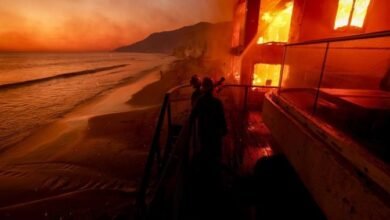Ukraine to end transit of Russian gas to EU

The stopping of the flow through Ukraine marks the end of an era of cheap Russian gas in the EU.
Slovakia is the most affected, while the European Commission says the impact will be limited, thanks to careful planning and alternative supplies.
However, the strategic and symbolic impact for the whole of Europe is enormous.
Russia has lost an important market but Russian President Vladimir Putin says EU countries will suffer most.
The EU has significantly reduced imports of gas from Russia since it launched its full-scale invasion of Ukraine in 2022, but a number of eastern member states still depend largely on the supplies, making Russia about €5bn ($5.2bn; £4.2bn) a year.
Russian gas made up less than 10% of the EU’s gas imports in 2023, according to figures from the bloc, external, compared with 40% in 2021.
But several EU members, including Slovakia and Austria, continue to import significant amounts of gas from Russia.
Austria’s energy regulator said it did not forecast any supply disruption as it had diversified sources and built up reserves.
But Ukraine’s decision has already caused serious tensions with Slovakia, which is now the main entry point of Russian gas into the EU and earned transit fees from piping the gas on to Austria, Hungary and Italy.
On Friday, Slovakia’s Prime Minister Robert Fico – who had just made a surprise visit to Moscow for talks with Russian President Vladimir Putin – threatened to stop the supply of electricity to Ukraine.
This prompted Mr Zelensky to accuse him of helping Mr Putin “fund the war and weaken Ukraine”.
“Fico is dragging Slovakia into Russia’s attempts to cause more suffering for Ukrainians,” the Ukrainian president said.
Poland has offered to support Kyiv in case Slovakia cuts off its electricity exports – supplies that are crucial to Ukraine, whose power plants come under regular attack from Russia.
Moldova – which is not part of the EU – could be seriously affected by the end of the transit agreement. The gas fuelled a power plant on which Moldova relies for most of its electricity needs. It also supplied the Russia-backed breakaway region of Transnistria, a small sliver of land sandwiched between Moldova and Ukraine.
Moldova’s energy minister, Constantin Borosan, said the government had taken steps to ensure stable power supplies to the country but called on citizens to save energy. A 60-day state of emergency in the energy sector has been in place in Moldova since mid-December.
President Maia Sandu accused the Kremlin of “blackmail” possibly aimed at destabilising her country ahead of a general election in 2025. The Moldovan government also said it had offered aid to Transnistria.
https://ichef.bbci.co.uk/ace/branded_news/1200/cpsprodpb/f258/live/136d8000-c7eb-11ef-9fd6-0be88a764111.jpg







